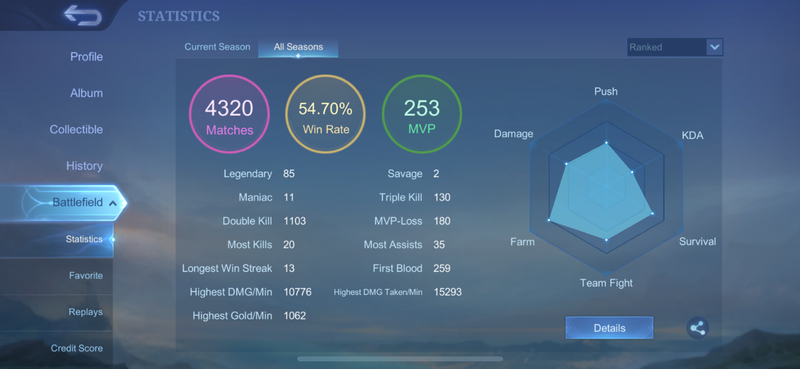Mobile Gaming: An Uncomfortable Reflection
Reflecting how mobile gaming is bad for society.
Like most people, I carry around a small slab of glass and metal that doubles as a camera, a wallet, a map, a library, and — of course — a console.
Mobile games have become a regular part of my life, though not always a proud one. I play them. I enjoy them. I can even argue they help me think better. But after years of tapping away on everything from 2048 to Mobile Legends: Bang Bang, I’ve started to ask myself: at what cost?
This isn’t a confession piece. If anything, it’s a reflection born out of concern — not for myself (I’ve dealt with most of the issues I mention here years ago, even before COVID), but for society in general. Especially younger people — digital natives — who’ve grown up with loot boxes and login rewards as a normal part of play.
Why I Play
These days, I mostly play Mobile Legends: Bang Bang. It’s quick, tactical, and strangely satisfying — especially when the team is coordinated and everyone plays their role. There’s something engaging about the structure of a 10-minute match: it demands focus, rewards strategy, and offers instant feedback.
My current status in Mobile Legends: Bang Bang.
I also keep Crystal Caliburn II installed — not for competitiveness, but for nostalgia. It’s a pinball game I remember from the Windows 95 era, and revisiting it feels like flipping through an old photo album. The game hasn’t changed, but I have, and that contrast is quietly comforting.
Then there’s Lara Croft Go, which I revisit now and then for its quiet puzzles and elegant design. It doesn’t push you, it invites you. That kind of pacing is rare in modern mobile games.
But more broadly — I play mobile games because they’re convenient. They fit into the margins of daily life. You don’t need a console, a mouse, or a dedicated hour. You just need a few minutes and a phone.
That convenience, combined with a bit of mental exercise — whether it’s timing, spatial reasoning, or decision-making — makes mobile gaming an easy go-to. Especially during transitions, waiting rooms, or winding down after a long day.
I won’t pretend it’s all intellectual. Sometimes I just want to click buttons and blow off steam. But I try to be intentional about it. I choose games that respect my time, or at least don’t exploit it.
What I’ve Played Before
Over the years, I’ve sampled a wide variety of mobile games — some for fun, some out of curiosity, and a few just to see what the hype was about.
I played Candy Crush, like everyone else, and stayed long enough to understand its pacing and how the randomness makes it feel like skill. Clash of Clans was another one I spent time with, learning how base-building and asynchronous multiplayer could feel competitive even without live opponents.
Fun Run gave me a laugh — it was chaotic, fast-paced, and perfect for a few short bursts with friends. Plants vs Zombies was clever in its design and rewarding to master, though once I finished the main campaign and explored the mini-games, I didn’t feel the need to keep going.
With each of these games, there was a point where I learned what I needed to learn — either as a player or as someone interested in game design and mechanics. Once I reached that point, I usually moved on. No drama, no uninstall rage. Just a quiet sense of: “Okay, I get it now.”
That habit of learning-then-leaving helped me avoid getting too entangled in the loops that some games build to keep players hooked. But I know not everyone approaches games this way — especially if they grew up with these mechanics as the default.
But There’s a Catch
Many mobile games today aren’t just designed to be played — they’re designed to keep you hooked. They’re polished and engaging, yes. But they also borrow heavily from gambling psychology.
You’ll find:
- Slot machine-like gacha systems, lucky draws, loot boxes, and randomized upgrades.
- Limited-time events and login rewards that pressure you to check in daily or risk losing progress.
- In-game betting mechanics, where players can predict match outcomes or risk in-game currency — harmless on the surface, but built on the same reward-feedback principles that fuel real-world betting.
It’s subtle, but effective. And if you’ve never known a world without these mechanics — if this is how you grew up learning to play — it changes what “fun” even means.
Also the amount of data gathered and preserved in-game PER USER ACCOUNT is insane!.
The Bigger Picture
It’s easy to dismiss this as “just games.” But the way we spend our attention shapes our habits, and our habits shape our lives.
Mobile games often promote short-term thinking. They reward impulse over patience, streaks over satisfaction. They train us to chase progress bars, loot drops, and badges — even when the joy of playing has long faded.
And when this is scaled across millions of players, especially young ones, I worry. Not about gaming itself — I’ll always defend games as a legitimate and even beautiful part of life — but about how many of today’s most popular games teach us to think and behave.
Reclaiming the Game
I still play. But I play with more awareness.
I avoid games with overly aggressive monetisation or FOMO mechanics. I don’t chase events. I remind myself that I’m here for the experience, not the reward loop. I’ve come to appreciate quiet games that ask for attention, not addiction.
Mobile gaming isn’t inherently bad. But it does reflect a broader trend in how we consume entertainment — quick, constant, and curated to keep us clicking. Maybe the answer isn’t to quit, but to pause now and then. To reflect.
To ask ourselves: is this still fun? Or just familiar?
This piece isn’t about moral panic. It’s about paying attention. If you’re anything like me — if your screen time graph is quietly judging you — maybe it’s time to take back a little control.

